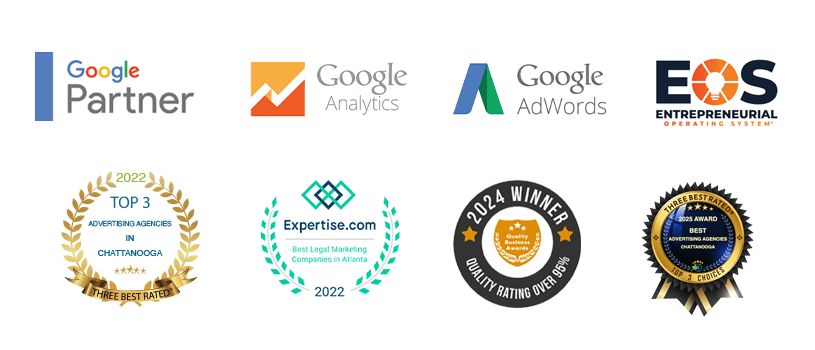News

How To Get More Leads Through Your Website Using SEO

How to get more leads through your website using SEO
In today’s digital world, having a website is crucial for any business looking to grow and expand its reach. However, simply having a website is not enough; it’s important to optimize it for search engines to generate traffic and leads. Search Engine Optimization (SEO) is the process of improving the visibility and ranking of your website in search engine results pages (SERPs). In this article, we will discuss how to get more leads through your website using SEO.
Conduct Keyword Research
Keyword research is a critical step in the SEO process. It involves identifying the keywords or phrases that potential customers use to search for products or services related to your business. This step provides insights into the language that people use when they are looking for businesses like yours.
Keyword research helps you understand the search demand for your products or services, what people are looking for, and the level of competition for each keyword. It’s essential to conduct keyword research regularly because search trends can change over time, and new keywords can emerge as your business evolves. Here are some tips to conduct effective keyword research:
- Start with your business objectives: Begin by defining your business objectives and goals. This will help you identify the keywords that are most relevant to your business and align with your business goals.
- Brainstorm keywords: Create a list of potential keywords that people might use to find businesses like yours. Use tools like Google Suggest, which provides autocomplete suggestions based on what people are searching for, to generate ideas.
- Use keyword research tools: Keyword research tools like Google Keyword Planner, SEMrush, and Ahrefs can help you identify the search volume, competition, and relevance of keywords. These tools provide insights into the keywords that potential customers use to find businesses like yours.
- Analyze your competitors: Analyzing your competitors can help you identify the keywords that they are targeting and the level of competition for each keyword. This can help you identify gaps in the market and opportunities to target keywords that your competitors are not targeting.
- Focus on long-tail keywords: Long-tail keywords are longer and more specific search phrases that are less competitive than broad keywords. They may have lower search volume, but they often have higher conversion rates because they are more specific to the searcher’s intent.
- Analyze search intent: Analyze the intent behind the search queries related to your business. Are people searching for information, products, or services? Understanding search intent can help you create content that matches the searcher’s intent and increases your chances of ranking higher in search results.
By conducting effective keyword research, you can identify the keywords that potential customers are using to find businesses like yours. This knowledge can help you optimize your website’s content, build a targeted backlink profile, and improve your website’s visibility and ranking in search engine results pages.
Optimize Website Content
Optimizing your website’s content is crucial for SEO because search engines use it to determine the relevance and authority of your website. Here are some tips to optimize your website’s content for SEO:
- Include target keywords: Use the keywords you identified during your keyword research to optimize your website’s content. Include them in your website’s page titles, meta descriptions, headers, and body text. However, avoid keyword stuffing, which can lead to penalties from search engines.
- Write engaging content: Your website’s content should be informative, engaging, and relevant to your target audience. Your content should answer your visitors’ questions and provide solutions to their problems. Use headings, subheadings, and bullet points to break up your content into easily digestible chunks.
- Use internal linking: Use internal linking to create a hierarchy of information on your website. This helps search engines understand the structure of your website and the importance of each page. Link to other pages on your website that are relevant to the content on the current page.
- Optimize images: Use alt tags and descriptive file names to optimize your website’s images for SEO. This helps search engines understand the context of your images. Use compressed images to reduce the page load time, which can improve your website’s user experience.
- Create quality content: Quality content is essential for SEO because it attracts links from other websites, which can improve your website’s authority and ranking. Create content that is unique, informative, and valuable to your target audience. Use multimedia such as videos, infographics, and images to make your content more engaging.
- Update content regularly: Regularly updating your website’s content can help improve its ranking in search engine results pages. Create a content calendar and update your website’s content with fresh, relevant, and engaging content regularly. This can also help increase the time users spend on your website, which is a positive ranking factor.
By optimizing your website’s content, you can improve its visibility, authority, and ranking in search engine results pages. This can lead to increased traffic, leads, and sales for your business.
Create Quality Backlinks
Backlinks are one of the most important ranking factors for SEO. A backlink is a link from one website to another. Search engines use backlinks to determine the relevance and authority of a website. Here are some tips to create quality backlinks:
- Guest post: Look for opportunities to guest post on relevant blogs in your industry. This allows you to showcase your expertise and link back to your website.
- Participate in online forums: Participate in online forums and communities related to your industry. This allows you to engage with potential customers and build backlinks.
- Engage on social media: Engage with your audience on social media platforms and share links back to your website. This helps to build backlinks and increase your website’s visibility.
- Monitor your backlinks: Use tools like Ahrefs or SEMrush to monitor your website’s backlink profile. This helps you identify any toxic backlinks that can harm your website’s SEO.
- Conduct a backlink audit: Before you start building new backlinks, conduct a backlink audit to identify the current links pointing to your website. This will help you understand your website’s link profile and identify any low-quality or spammy backlinks that could harm your SEO.
- Create high-quality content: Creating high-quality content that’s relevant to your target audience is one of the most effective ways to attract natural backlinks. When your content is informative, engaging, and valuable, other websites are more likely to link to it, which can improve your search engine ranking.
- Build relationships with other websites: Building relationships with other websites in your industry can help you get more backlinks. Reach out to other websites, offer to contribute to their blog or collaborate on a project, and include a link back to your website.
- Use infographics: Infographics are a highly shareable and linkable form of content. Creating visually appealing infographics with valuable information can help you attract backlinks from other websites.
- Participate in roundup posts: Roundup posts are blog posts that feature contributions from multiple experts on a specific topic. Participating in roundup posts can help you build relationships with other experts in your industry and earn backlinks from their websites.
Remember, the quality of your backlinks is more important than the quantity. Focus on building high-quality backlinks from relevant websites with high domain authority to improve your website’s search engine ranking and drive traffic to your website.
Optimize for Local Search
If you have a local business, it’s important to optimize your website for local search. Local search is the process of optimizing your website for search queries that include location-based keywords. Here are some tips to optimize your website for local search:
- Optimize your Google My Business profile: Create a Google My Business profile for your business and ensure that it’s optimized with accurate information, including your business address, phone number, and hours of operation.
- Create local landing pages: Create landing pages for each of your business’s physical locations. This allows you to optimize your website’s content for location-based keywords.
- Build local citations: A local citation is a reference to your business’s name, address, and phone number (NAP) on other websites, such as online directories or review sites. Building local citations helps to increase your website’s visibility in local search results.
- Encourage online reviews: Encourage your customers to leave online reviews on Google My Business, Yelp, or other review sites. Positive reviews can improve your website’s visibility and credibility in local search results.
Monitor and Analyze Your Website Performance
It’s important to monitor and analyze your website’s performance regularly to track the effectiveness of your SEO strategy. Here are some tools to use for website analysis:
- Google Analytics: Google Analytics is a free tool that provides insights into your website’s traffic and user behavior. You can use it to track your website’s traffic sources, bounce rate, and conversion rate.
- Google Search Console: Google Search Console is a free tool that provides insights into your website’s performance in Google search results. You can use it to track your website’s ranking, click-through rate, and impressions.
- Ahrefs or SEMrush: These tools provide insights into your website’s backlink profile and help you identify opportunities to improve your website’s SEO.
Monitoring and analyzing your website’s performance is crucial to ensure that your SEO strategy is effective in achieving your business goals. In addition to the tools mentioned above, here are some unique and relevant ways to monitor and analyze your website’s performance:
- Track user engagement: In addition to tracking traffic and conversions, it’s essential to track user engagement on your website. This includes metrics such as time on page, scroll depth, and click-through rates. Tracking user engagement can help you identify which pages and content are resonating with your audience and optimize your website accordingly.
- Conduct A/B testing: A/B testing involves comparing two versions of a webpage to determine which version performs better in terms of conversions or user engagement. By conducting A/B testing, you can identify what works best for your audience and optimize your website accordingly.
- Monitor site speed: Site speed is a critical factor in SEO and user experience. Slow loading times can negatively impact your website’s ranking and user engagement. Use tools like Google PageSpeed Insights to monitor your website’s loading times and identify opportunities to improve site speed.
- Analyze competitor data: Analyzing your competitors’ website data can provide insights into their SEO strategy and help you identify opportunities to improve your own. Use tools like SimilarWeb or SpyFu to analyze your competitors’ website traffic, backlinks, and keyword rankings.
By monitoring and analyzing your website’s performance using a combination of these tools and strategies, you can make data-driven decisions and continuously improve your website’s SEO strategy to achieve your business goals.
Conclusion
SEO is an effective way to generate leads and grow your business. However, it requires a strategic and consistent approach. To get more leads through your website using SEO, you need to conduct keyword research, optimize your website’s content, create quality backlinks, optimize for local search, and monitor your website’s performance regularly. By following these steps, you can improve your website’s visibility in search engine results pages and generate more leads for your business.
If you are looking to grow your business in the Chattanooga area, schedule a free consultation with us today!










